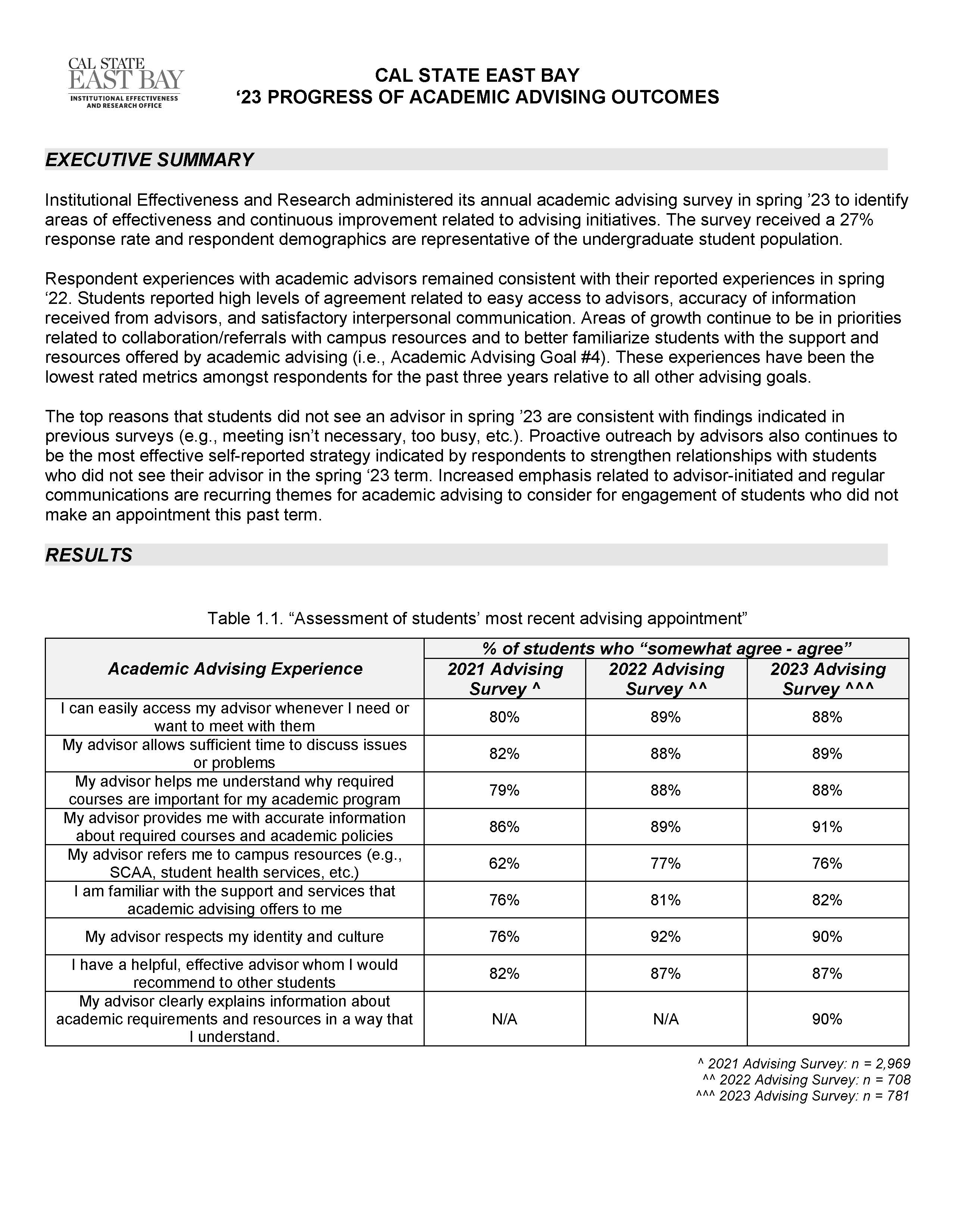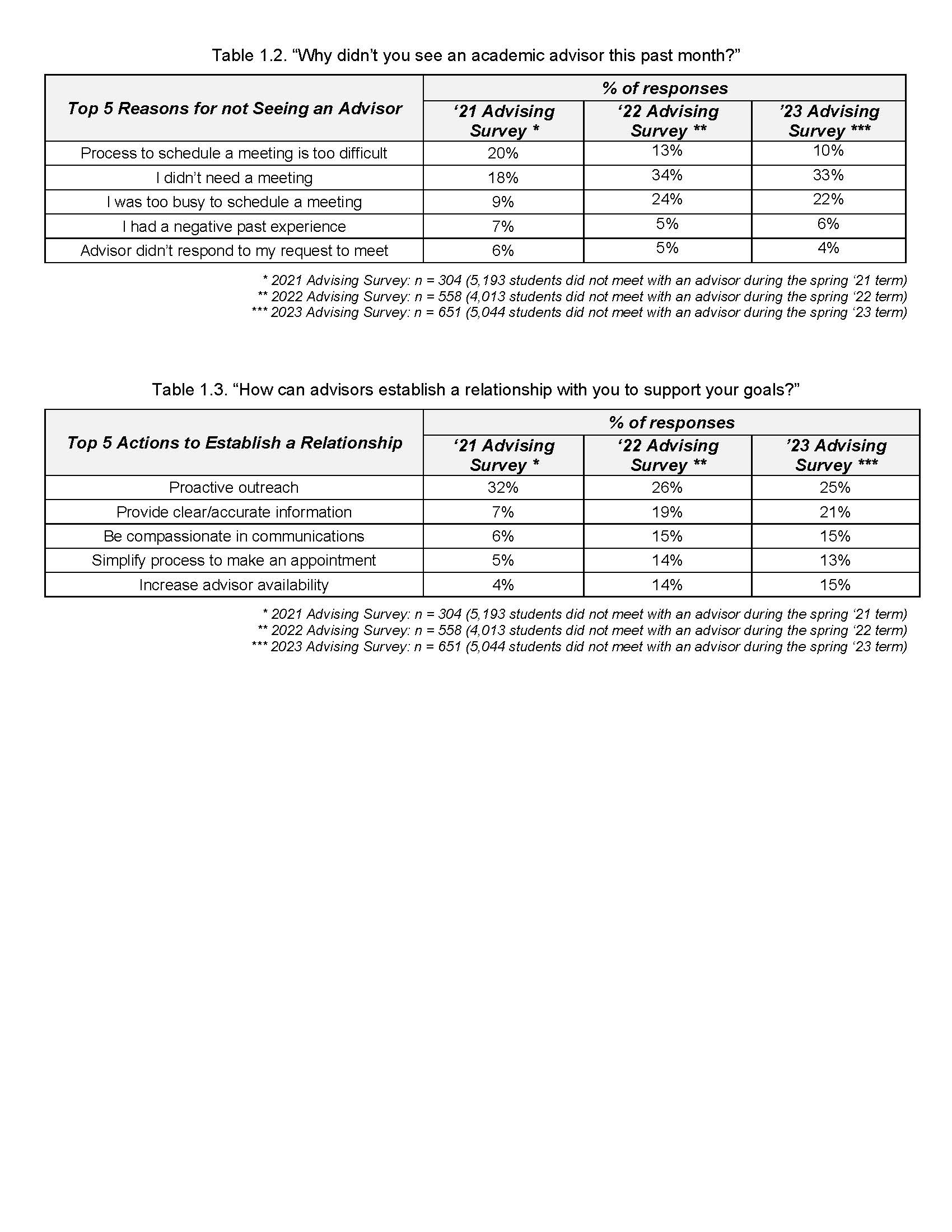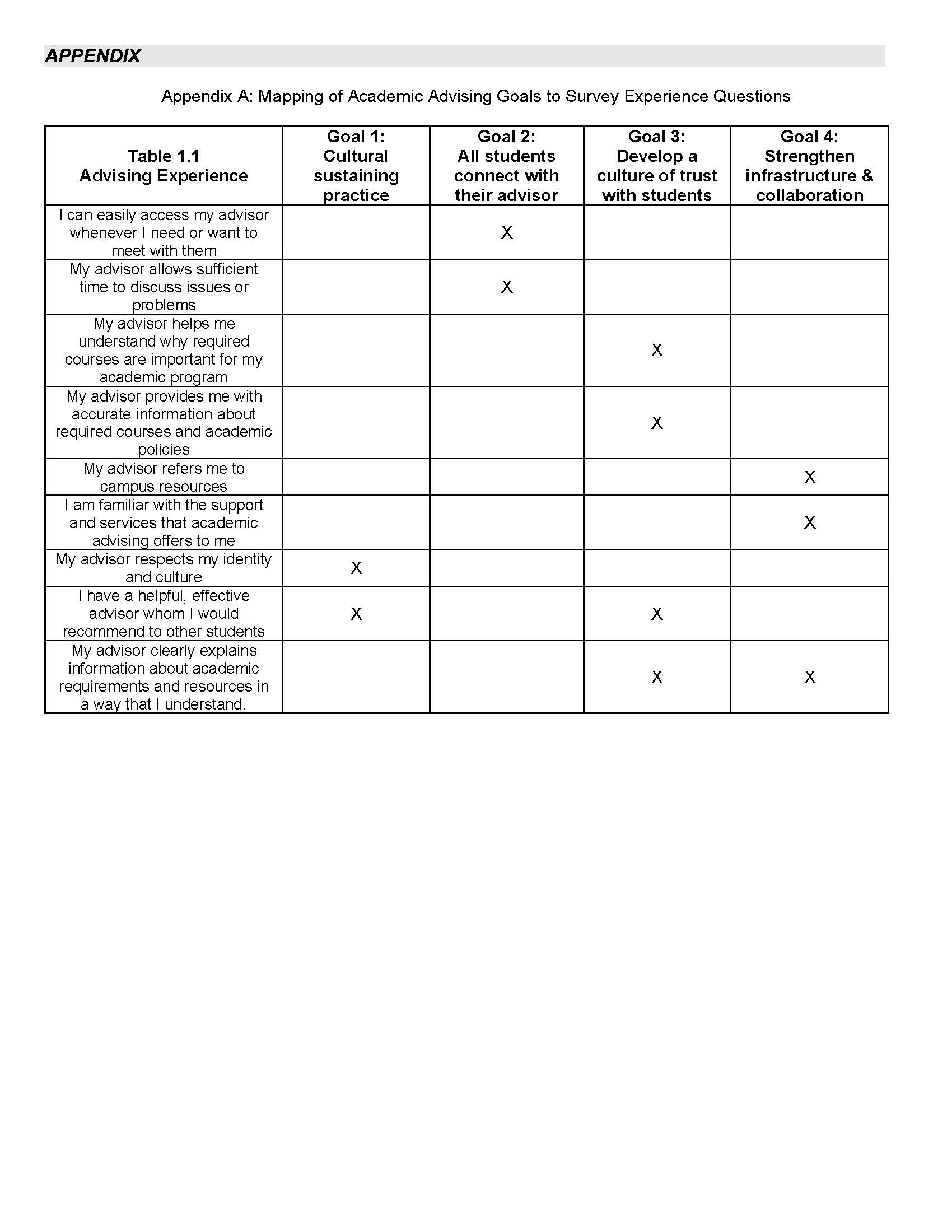Current Analysis & Research
-
Asian Pacific Islander Student Success Center (APISSC)
Black Student Success Center (BSSC)
Diversity and Inclusion Student Affinity and Resource Centers (DISARC)
Educational Opportunity Program (EOP)
Gaining Access ‘N Academic Success (GANAS)
Pacific Islander Asian American Program (PIAA)
Recreation
Wellness
-
Supporting Native American/Indigenous Students at Cal State East Bay
We aim to increase visibility of Native American/Indigenous students, contribute to overall structural equity and cultural sustenance for Native American/Indigenous students through collection and analysis of data and identification and implementation of practices, policies, and overall infrastructure approaches to uplift and support Native American/Indigenous students.
Team Members
Eun Rhee, Research Associate, Institutional Effectiveness and Research
Claire Valderama-Wallace, Associate Professor, Nursing
Christina Chin-Newman, Professor, Human Development and Women's Studies
Jennifer Zenovich, Lecturer, Communication and Human Development
Monica Arellano, Vice Chairwoman, Muwekma Ohlone Tribe of the San Francisco Bay Area
-
Food Insecurity at Cal State East Bay
The 2021 Campus Climate Survey indicated that 36% of students experienced difficulty affording food, and data from the same semester reported 1,000+ food pantry appointments in addition to 1,500+ CalFresh applications designed to financially supplement nutritional needs of students at East Bay. This Data & Action team analyzed data related to Cal State East Bay students’ food insecurity and developed an action plan to enhance the services provided by the Pioneers for H.O.P.E. food pantry.
Team Members
Jen Luna, Director Recreation and Student Well Being, Student Affairs
Ryan Gamba, Assistant Professor, Public Health
Bill Irwin, Student Success Specialist, Academic Programs
Bal Kumar, Director Special Academic Sessions, University Extension
Collen Arnold, Lead Counselor, Counseling Services
Kate White, Director Continuing Education, Domestic Programs
Kevin Gin, Senior Strategic Partner, Institutional Effectiveness and Research
-

Summary
“Black Excellence” is a media project that spotlights Black CSUEB Students who successfully completed or are scheduled to complete their degrees in 2 years as transfers and 4 years as freshmen students. Through interviews with Black CSUEB Students and Graduates, the team's goal was to demonstrate positive best practices on campus that support student success while highlighting examples of resilience, strength and perseverance.
Team Members
Steven Cleveland, Professor, Ethnic Studies
Sarah Aubert, Curriculum/Catalog Specialist, Academic Programs & Services
-
A collaborative, cross-functional team of faculty and staff will focus on this year’s topic, student advising experiences at Cal State East Bay. Recent data from fall 2020 indicate that 27% of students who departed East Bay did not speak with anyone in the campus community about their decision to leave, and 20% of students cited difficulties with their academic advising as a major factor in their decision to not return. The 2021 Data & Action team will engage in a data-driven research process by analyzing results from Cal State East Bay Advising survey results and developing an action plan to enrich advising practices designed to counteract student departure.Outcomes for this year's project are to:
- Explore institutional and survey data to understand student success trends at Cal State East Bay.
- Analyze assessment results related to student experiences with academic advising.
- Integrate equity-minded student success frameworks into student advising practices.
- Develop an action plan to strengthen student advising practices on campus.
- Collaborate across divisions to strengthen institutional commitment to student success.
ACADEMIC ADVISING SURVEY SUMMARY
Team Members
Luz Calvo, Faculty/Chair, Faculty Lead of GANAS Program
Kevin Gin, Senior Strategic Partner, Institutional Effectiveness & Research
Paul Carpenter, Professor/Department Chair, Kinesiology
Christina Chin-Newman, Professor, Human Development & Women's Studies
Shannon Coskran, PACE Counselor and Coordinator
Saleem Gilmore, Director, EOP
Shonda Goward, Director, Student Center for Academic Achievement
Bill Irwin, Student Success Specialist, Academic Programs & Services
Jennifer Luna, Director, Recreation & Student Wellbeing
Cherie Randolph, Veterans Retention Program Coordinator
Thomas Tyner, Executive Director, University Extention
-

Summary
The Academic Probation Project focused on gathering and analyzing data related to academic probation of students at CSUEB. This team strived to connect with students, particularly transfers, prior to their first semester to communicate relevant policies and regulations, clarify academic requirements and expectations, and make necessary connections and introductions. Their goal was to implement an action plan that will help decrease the number of students with the institution GPA below 2.0 and advance retention rates for this cohort. Furthermore, the team intends to launch an updated website on probation and disqualification matters for easy student access and guided pathways.
Team Members
Michelle Rippy, Assistant Professor, Criminal JusticeNatalia Musgrove, Pioneer Success Coach, Academic Programs & ServicesDana Rucker, Admin Assistant, PsychologyPhilip Cole-Regis, Manager, Academic Projects & InitiativesSatomi Furuichi, Research Associate, Institutional Effectiveness & ResearchLinda Beebe, Student Support Coordinator, General EducationMurray Horne, Associate Professor, PsychologyAlexandra Rechtschaffer, Student -

Summary
The Stop-Out Project, the team analyzed data from an enrollment survey administered over the last three years with the intent to conducted an enrollment survey that would help identify key institutional and personal factors that prevented impacted students’ consecutive enrollment in college. Their goal was to explain the experiences and voices of students who stop-out and share these reasons with faculty and staff across campus to help inform systemic policies and processes; thus positively impacting make decisions to lower the stop-out rate.
Team Members
Heather Vilhauer, Assistant Professor, Hospitality, Recreation & TourismMartin Castillo, Associate Vice Provost, Campus LifePaul Carpenter, Professor/Department Chair, KinesiologyLara Dungan, Admissions Coordinator/Advisor, NursingAlina Engelman, Assistant Professor, Health SciencesJeannie Gee, Program Coordinator, University ExtensionClarissa Hernandez, Admin Analyst, Academic Programs & ServicesEun Rhee, Research Associate, Instiutional Effectiveness & Research









